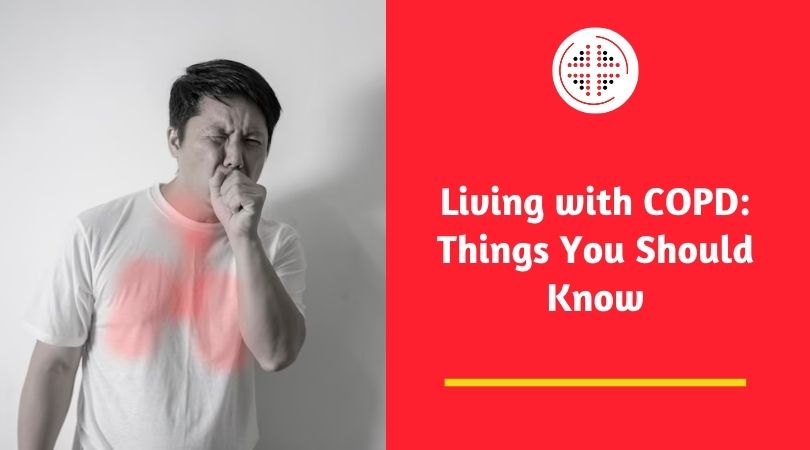


Chronic obstructive pulmonary disease (COPD) is the collective term for multiple lung diseases that prevent you from breathing normally. COPD can affect various aspects of your daily life, and you may face severe consequences without proper treatment. According to WHO, COPD is the world's third leading cause of death rates, with 3.23 million fatalities in 2019.
Let's learn more about living with COPD and everything entailing it.
COPD is a group of progressive diseases that affect your lungs and your ability to breathe. It comprises of one or more of three separate illnesses that may include:
COPD is a common condition that primarily affects middle-aged or older individuals. In many cases, people remain unaware and live with it.
COPD is an inflammatory condition that severely affects your lungs. When you have COPD, less air flows through the airways. This may occur due to the following reasons:
You won't have signs or symptoms in the early stages of COPD until significant lung damage has occurred, and it worsens over time. However, you may notice the following in the early stages of this condition:
You will have the following symptoms when the condition reaches the latter stages:
If you have chronic COPD symptoms, you should contact your healthcare provider, especially if you are over 40 and have a history of smoking. The doctor will inquire about your symptoms and arrange for a breathing test. The following tests can be performed for COPD diagnosis:
There are various treatment options available for COPD. These may include:
You can live with COPD by following these tips:
You should immediately contact your doctor if you notice the following:
Don't let COPD affect your life! Act now and seek medical care before your condition worsens. At MI Express Urgent Care, we provide comprehensive treatment for these conditions. Our team of expert doctors provides complete help that fulfills your health needs. Contact us today for a quick consultation.
Yes, you can live with COPD without much trouble, as it isn't fatal.
Better disease management can slow the disease's progression, relieve symptoms, and keep you out of hospital.
You need to make various lifestyle changes if you wish to stay healthy with COPD. Firstly, you need to quit smoking. Additionally, you need to follow a healthy diet and exercise regularly.
COPD can lead to limited physical activity, poor sleep, and increased stress and sadness, all of which contribute to symptom overload.
Inhaling dust, chemical gases, vapors, and fumes can exacerbate this condition significantly.